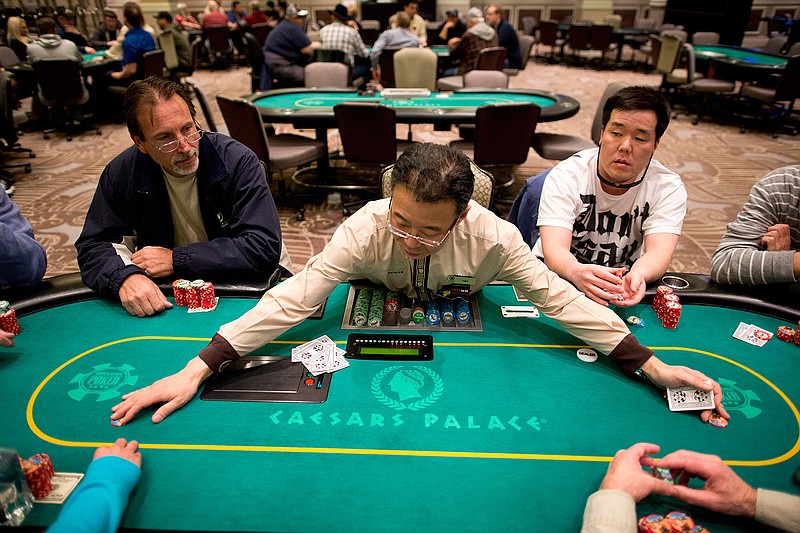LAS VEGAS-When the Monte Carlo casino closes its eight-table poker room in about a month as part of a $450 million overhaul, the Las Vegas Strip will be down nearly a quarter of the tables it had a decade ago.
Casinos constantly adjust their floors to meet customer demand. And unlike the boom years when they competed for card fans after everyman Chris Moneymaker won the World Series of Poker's main event in 2003, poker's appeal in Sin City has been weakening this decade.
Some casinos have made their poker rooms smaller. Others have eliminated them entirely.
"Casinos added more tables in response to popularity, and once it became less popular, they took away the tables," said David Schwartz, director of the Center for Gaming Research at the University of Nevada, Las Vegas. The peak of the poker room was 2007.
In 2002, before fans of Texas Hold 'Em began to rush to the Strip, casinos had 144 tables and made $30 million from the game. Five years later, casinos had more than tripled their poker revenue to $97 million with 405 tables. Last year, the game netted them only $78 million after the number of tables decreased to 320.
The situation is similar across the state. Casinos had 907 tables and made $168 million in 2007. Last year, they took in $118 million from 661 tables.
Even the game's proponents understand poker has never been a big moneymaker for casinos. That's because instead of gambling against the stacked odds of the house as they do in blackjack or slots, players wager against one another and the casinos take a portion as a fee for hosting the games.
Casinos were willing to do that to keep players in their establishments while the game's popularity soared. The boost was fueled by the rise of internet gambling and a watershed moment in 2003 when Moneymaker, as an amateur, won $2.5 million as people watched on TV.

